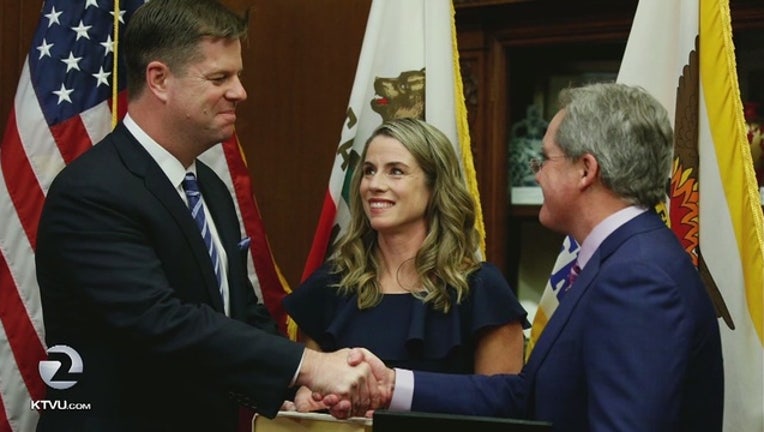Mayor budgets another $4.2M for HIV-related programs

SAN FRANCISCO (BCN) The city of San Francisco, already making strides in reducing HIV infections, is adding $4.2 million to it's budget to help fund prevention and health services programs, Mayor Mark Farrell announced today.
The extra funding will help backfill local and federal funding for the critical services and brings the total amount of funding for HIV and AIDS that the city has backfilled to $16.3 million since the 2013 fiscal year.
While the city has successfully reduced its overall HIV infection rate, its redoubling efforts to reduce the rate for underserved people, such as communities of color, trans communities and young people.
"We have made remarkable advances in reducing HIV infections and improving the lives of people living with HIV, but we must continue to fight against this ongoing public health threat," Farrell said in a statement. "I am committed to fighting this disease, and am ensuring that our local government maintains funding levels for critical programs."
The city's budget for HIV/AIDS prevention totals $59.5 million and currently covers preventions, health care services, outreach and engagement.
The new funding from the Mayor's budget includes $2.8 million over two years to cover losses from federal spending cuts at the Centers for Disease Control and Prevention. These funds will pay for disease surveillance and preventions programs, HIV testing and the coordination of syringe access
and disposal programs, as well as other initiatives.
The remaining $1.4 million from the mayor's budget will be used over two years to backfill expiring funds from the city's Getting to Zero initiative, a collaborative effort with community-based organizations, the city's Department of Public Health and the University of California at San
Francisco, among others.
Getting to Zero, started in 2014, aims to have zero new HIV infections and zero HIV-related deaths in the city by 2025. The program focuses on providing PrEP (pre-exposure prophlaxis) for people who are HIV negative, connecting newly infected people with treatment and retaining those
getting treated.
The $1.4 million will also go to fund outreach, prevention and treatment programs tailored for people who experience the most HIV disparities, such as African American and Latino men, young people and trans women. The funds will also support employment and food security programs for
people living with HIV, according to the mayor's office.
"San Francisco has pledged to Get to Zero in the battle against HIV/AIDS," SFDPH Health Director Barbara Garcia said in a statement. "Thanks to major accomplishments in care and medication, along with syringe access, community partnerships and world-class research, we are in a good position to
reach that goal. But we won't get there if we don't fix the disparities that impact African American, Latino and homeless people in our city. This funding boosts our ability to reach these communities and tailor outreach, prevention and treatment to meet their needs," she said.
According to the mayor's office, new HIV diagnoses tumbled to a record-low 223 in 2016. At the city's peak in 1992, during the AIDS epidemic, 2,332 people in San Francisco were infected.
Currently, it's estimated there are about 16,000 people living in the city with HIV, 26 percent of those are over the age of 60.
Homeless people and injection drug users are at high risk for HIV infections, however, according to the mayor's office, new infections among that group also continue to drop with only 38 HIV positive diagnoses in 2016.

